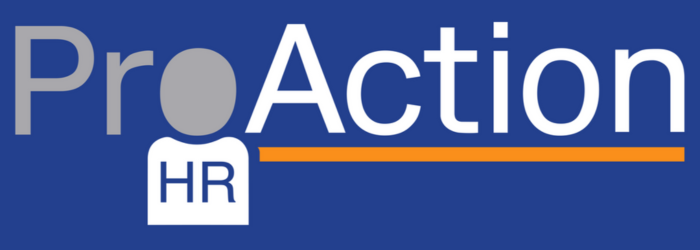The Perfect Onboarding Experience for New Talent
Written by Martin Nicholson, co-founder of ProAction HR.
*******************************************************************
Earlier this week I was a guest on the People Culture and Tech webinar series hosted by Paul Church of Interquest. In the session, we explored the importance of offering a great onboarding experience for new talent joining your organisation.
Never has that been such a critical factor in successful recruitment and ongoing business success as it is right now.
The term ‘the war for talent’ has been confined in recent years to some sectors, such as those requiring STEM skills, or the construction industry, but now it is very much mainstream. Virtually no industry is exempt from having to compete fiercely to attract new staff. The Office of National Statistics shows that the number of UK job vacancies from September to November 2021 rose to a new record high of 1,219,000 with 13 of the 18 industry sectors showing record highs. And a recent Korn Ferry report has found that by 2030, more than 85 million jobs could go unfilled because there aren’t enough skilled people to take them.
Added to that, we have already seen the rise of the Great Resignation. People are choosing like never before about where they want to be, and what they want to do to generate an income. So, if your onboarding experience doesn’t meet, or actually in reality exceed, their expectations then new starters are going to get disillusioned really quick and move on, because, let’s face it, it’s a candidate market that gives them ample opportunity to do so.
The risk of losing people is highest in the first three months, particularly in a hybrid/remote working model. And that leaves you right back at the start of the recruitment process again, potentially short on staff and with the knock-on effect that has on your business productivity and ultimately the impact for your customers.
One of the questions I posed to the participants of the webinar was “What do you think of your onboarding in the past 6 months?” And 7 or lower or 8 and higher out of 10 were the options. We didn’t measure the results but have you ever considered your own process?
Do you take the time to measure how your new starters feel when they join your organisation?
Or is it just an assumption that their experience is memorable for the right reasons?
Here are some of the key points covered in the webinar which you should consider if your onboarding experience needs a boost:
What is onboarding?
Induction is the process to get someone started (paperwork/policies/logins etc), onboarding is the experience a candidate receives from interview through to successful probation. It needs to cover the emotional, functional, and operational aspects of joining your organisation.
How do companies get it wrong with onboarding?
Many will focus just on week one and consider it done and dusted. And often the assumption is that it should be HR that delivers it when in reality, people across the business need to engage with new starters – there needs to be a buy-in from teams and senior managers to really make it a positive experience.
Where do the responsibilities lie with onboarding?
Yes, it is down to HR to create the approach – but all managers need to be involved and actively take part.
How easy is it to lose people in the first three months and how much of an impact does onboarding have on that?
If onboarding is the collective experience through to successful completion of an individual’s probation period, then it has a massive part to play. It’s important to consider when do the employees’ expectations of the company diminish?
Which companies demonstrate fantastic onboarding experiences? What do they do?
Eventbrite to connect new hires to everyone within their organisation, however, all the usual digital businesses but I particularly like the stated intention here.
What functional aspects MUST you get right with the onboarding experience?
One element to get right ahead of time are the hygiene factors, such as the provision of the organisation’s policies and procedures, the physical work environment and access to software, systems and tools to carry out the individual’s role. The term “hygiene” is used in the sense that these are maintenance factors, however they are critical to have in place so that onboarding is a welcoming, not frustrating experience for your new staff.
Secondly, involving the business and its leaders and managers in the onboarding experience so it is seen as an important part of the overall culture of the organisation.
In a hybrid/remote culture, how do you ensure your joiners get the right levels of communication during onboarding?
Ask them what they want – everyone will have their own preferences and while many have embraced hybrid or remote working – starting a new job can be a whole different experience to just not working in the same office with your very familiar work colleagues any more.
Of course, there will be some standard information that must be provided consistently but what else do they want? It could be worth assigning a new starter buddy or preferably line manager to ensure they feel included.
How do you build emotional attachment from your new joiners in their onboarding?
It’s not simply a standard process and online system, it has to come from a genuine desire to make their start perfect, to make them feel comfortable, welcomed, and part of ‘the team’. It’s important to ensure their manager knows the role they play in that experience and that they are fully committed to it.
What are your absolute MUST DOs for your perfect onboarding checklist?
What are the objectives you want from this program?
Understand your data.
New hire turnover rates (less than 6 months service) now versus 2018?
What are new hires telling you?
Right ahead of time – Hygiene factors including laptop, desk.
Communicate, communicate and then communicate – who does which bit?
Explain policies and processes simply.
Be very clear on work from home/office.
Like all good training, consider the various medium used to deliver onboarding to continue interest.
Set objectives – months 1, 2, and 3 increasing in scope and impact – they want to feel they have achieved.
Consider social connections and helping new colleagues to build these…
As we head rapidly towards a new year – historically a time for new horizons when it comes to career moves, it’s time to ensure your organisation offers the perfect onboarding experience for new talent.
If you need some support to ensure your onboarding hits the spot in 2022, then please get in touch and let’s explore how we can help you.


